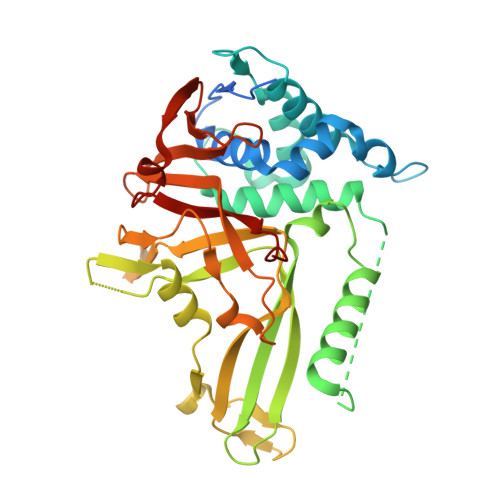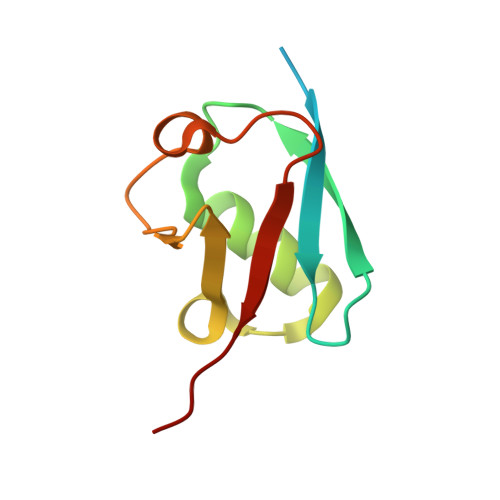Yeast Two-Hybrid Analysis for Ubiquitin Variant Inhibitors of Human Deubiquitinases.
Pascoe, N., Seetharaman, A., Teyra, J., Manczyk, N., Satori, M.A., Tjandra, D., Makhnevych, T., Schwerdtfeger, C., Brasher, B.B., Moffat, J., Costanzo, M., Boone, C., Sicheri, F., Sidhu, S.S.(2019) J Mol Biology 431: 1160-1171
- PubMed: 30763569
- DOI: https://doi.org/10.1016/j.jmb.2019.02.007
- Primary Citation of Related Structures:
6DGF - PubMed Abstract:
We applied a yeast-two-hybrid (Y2H) analysis to screen for ubiquitin variant (UbV) inhibitors of a human deubiquitinase (DUB), ubiquitin-specific protease 2 (USP2). The Y2H screen used USP2 as the bait and a prey library consisting of UbVs randomized at four specific positions, which were known to interact with USP2 from phage display analysis. The screen yielded numerous UbVs that bound to USP2 both as a Y2H interaction in vivo and as purified proteins in vitro. The Y2H-derived UbVs inhibited the catalytic activity of USP2 in vitro with nanomolar-range potencies, and they bound and inhibited USP2 in human cells. Mutational and structural analysis showed that potent and selective inhibition could be achieved by just two substitutions in a UbV, which exhibited improved hydrophobic and hydrophilic contacts compared to the wild-type ubiquitin interaction with USP2. Our results establish Y2H as an effective platform for the development of UbV inhibitors of DUBs in vivo, providing an alternative strategy for the analysis of DUBs that are recalcitrant to phage display and other in vitro methods.
- Department of Molecular Genetics, University of Toronto, Toronto, ON M5S 3E1, Canada; Donnelly Centre for Cellular and Biomolecular Research, Banting and Best Department of Medical Research, University of Toronto, Toronto, ON, M5S3E1, Canada.
Organizational Affiliation:



















